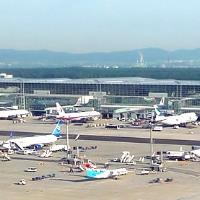(BRUSSELS) – Responding in part to disruption from the war in Ukraine, the EU Commission adopted Tuesday a proposal to allow the airline slot regime to respond more flexibly to unexpected future developments.
While the current rapid ascent in demand, as well as projections for future demand, point to an ongoing recovery of air traffic, the Commission says recent experience has shown that the current slot rules are not sufficiently resilient to large-scale disruptions.
The war in Ukraine also shows how air traffic and airlines’ ability to meet normal slot use requirements can be severely and durably affected by other unforeseen developments on specific routes.
The EU executive is proposing, on the one hand, to return to the standard slot use rate of 80% as of 30 October (from currently 64% under the for the summer 2022 scheduling season) reflecting demand but at the same time, to prolong the possibility to make use of the ‘justified non-use of slots’ (JNUS) tool created during the pandemic.
Airlines would be able to use these exceptions in situations such as epidemiological emergencies, natural disasters, or widespread political unrest with a disruptive effect on air travel. In addition, and only as a last resort, the Commission would be empowered to lower the use rate if air traffic levels fall below 80%, compared with 2019 figures, for four consecutive weeks due to COVID-19, another epidemiological situation, or as a direct result of Russia’s military aggression against Ukraine.
The Commission is also proposing a number of specific measures to mitigate the consequences of Russia’s aggression and to restore air connectivity between the EU and Ukraine when the time comes. These include for example a 16-week recovery period before slot-use requirements become applicable again once Ukrainian airspace reopens, as well as the possibility to adopt a Delegated Act to lower the use rate on routes between the EU and Ukraine.
The proposal will now be urgently discussed by the European Parliament and the Council.



